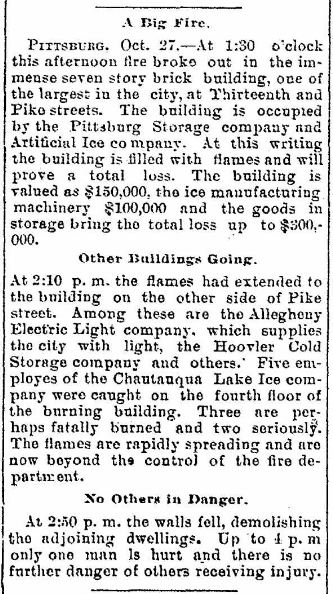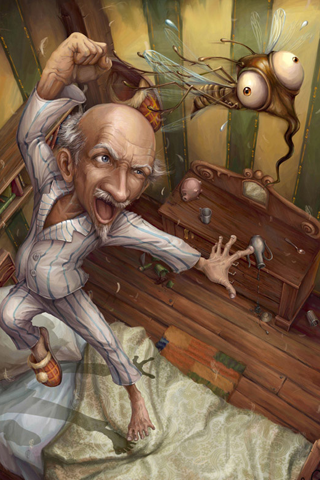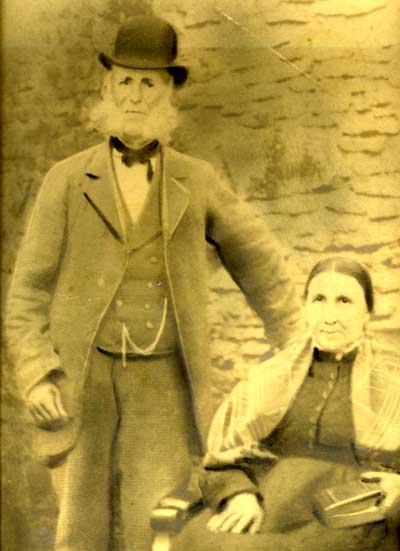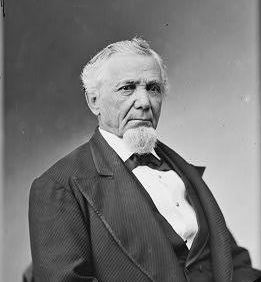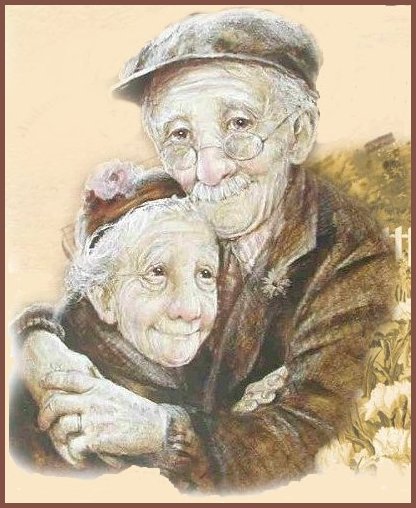
MISS SARAH WINNEMUCCA.
Miss Sarah Winnemucca recently passed through Carson, Nevada, on her way to Virginia City. This notable woman is commonly reputed to be the daughter of the old war chief of the Piutes, but this statement is denied, and it is represented that she was born of Digger parents somewhere in the foothills of the Sacramento Valley, and was educated by “The Sisters” at their Catholic academy in Marysville. Still the fact remains that she is enough versed in the Piute tongue to be able to talk fluently with the people of the tribe, for whom she had frequently acted as an interpreter. She is popularly regarded as the virgin queen of the Piutes; is a plain little woman, pretty dark; dresses like an American female, of rustic habits and modest pretensions; and talks English without any perceptible accent. She is a capable person, and reads our language and expresses herself in writing quite correctly, and with considerable force of expression. We have also heard of her writing poetry. As a reputed princess of the Piute blood royal she is a famous character. — [Carson, Nevada, Appeal.
The Fitchburg Sentinel (Fitchburg, Massachusetts) Aug 2, 1873

THE PIUTE QUEEN.
A Letter From Her Highness to Chief Naches.
[Winnemucca Silver State.]
Naches, Chief of the Piutes, has received a letter from Sarah Winnemucca, the Piute Queen, now at Fort Simcoe, Washington Territory. She says she is well and doing well, and is now teaching a school among her people, which sixty of them, and sometimes more, attend. They have cleared about 70 acres of land and put in quite a crop of corn and potatoes. Lee Winnemucca is working for the agent at Simcoe Reservation, and Mattie, her niece, who accompanied her through the war last Summer, is dead. Twenty-one of the Piutes, who were taken to Simcoe last Winter have died, and there are quite a number of others on the sick list, many of whom are not expected to live. Those of the tribe who were taken to Vancouver as prisoners of war, she has not heard from, and she does not know what is going to be done with them. Princess Sally hankers for pine nuts, and wants Naches to send her as many of them as he can. She cannot tell when, if ever, she and her people are coming back, as they cannot leave without orders from Washington to that effect.
Daily Nevada State Journal (Reno, Nevada) Jul 17, 1879

Sarah’s Challenge.
The following is said to be a literal copy of Sarah Winnemucca’s challenge to the editor of the Silver State:
Your statement that I am a drunkard is an infernal lie, and you knew it was false when you wrote it. If you are anything of a man you will meet me and give me satisfaction. I will cram the lie down your throat at the point of a bowie knife. An early answer will oblige.
SARAH WINNEMUCCA.
Reno Evening Gazette (Reno, Nevada) Feb 24, 1880

Image from dragonflydesigns – Ancient Voices
Married a California Princess.
SAN FRANCISCO, December 8. — The princess of the Piute Indians of Nevada, commonly called Sarah Winnemucca, was married last night at the Russ house, in this city, to L.H. Hopkins, an ex-soldier of the United States army, who arrived here from Arizona on November 3. The bridegroom informed a reporter that as far back as 1879, during the Bannock campaign, he first met the princess, and was smitten with her charms. Since then mutual feeling has inspired them and, an opportunity presenting itself, they resolved never to be separated again. Dr. Beers was the officiating minister. Princess Winnemucca Hopkins and Mr. Hopkins will take their departure for the east at an early date. The princess is well known on this coast. She has lived mainly in Carson, Nev., with her father, the old Chief Winnemucca, who died a few months ago. She is a bright girl, has a good English education, and looks more like a Mexican girl than Indian. She has regular features and dresses fairly. She is a great advocate of education and has lectured in this and other cities on the wrongs of her tribe.
The Atlanta Constitution (Atlanta, Georgia) Dec 9, 1881

Image from Fort Tours
PLEADING FOR HER RACE.
The Princess Winnemucca Before the Senate Committee on Indian Affairs.
WASHINGTON, April 22. — The Princess Sarah Winnemucca, of the Piute tribe of Indians, was before the senate committee on Indian affairs to-day, pleading for a setting apart of a reservation for her tribe. She was accompanied by a delegation of ladies and gentlemen from Baltimore. The Indian woman spoke in good English, emphasizing her remarks with graceful gestures. As she depicted the griefs of her people, she was frequently moved to tears. She said her tribe was scattered, that they had been driven from place to place, “Two winters ago,” she continued, “while being driven from one point old men and children were frozen to death. She also said that the Indian agents had deprived the tribe of the stores provided for them by the government. The Piutes are located in Nevada. The princess asked that camp McDermott be set apart for them.
The Atlanta Constitution ( Atlanta, Georgia) Apr 23, 1884

Google Book link – Read Online
An Indian Tale.
“Life Among the Piutes,” is the title of a new book just published in the East, the authorship of which is accredited to Sarah Winnemucca, the Piute princess. In the introductory chapter the reputed authoress informs the reader that “I was born sometime about the year 1844. My grandfather, Winnemucca, was then camped at Humboldt Lake with others of his tribe. It was about that time that a party of white men returning from California, was seen approaching our camp,” etc., etc.
The book is said to be full of thrilling incidents in the life of the dusky heroine, (which of course never happened.) It tells all about the capture of Sallie and her brother by the whites and how they were taken to California and educated; how they rejoined the tribe as soon as liberated; how in after years they labored to keep peace between the whites and Indians; how the heroine wrestled with her people to make christians out of them, and to prevent them from becoming victims to King alcohol and other besetting sins forever thrown in their way by conscienceless white men, and all that sort of thing. One or two heart rending love stories, in which the authoress plays a conspicuous part, are also woven in to give spice to the narrative. All of which, no doubt, will be entertaining to people in the East who know the Indian and his mode of life simply through pictures drawn in fancy by Cooper and other blood and thunder novelists, but to those who have lived in Nevada a quarter of a century and are somewhat familiar with the Piute tribe and the career of this dusky heroine, whatever interest the book may contain will be from another and very different standpoint.
Weekly Nevada State Journal (Reno, Nevada) May 3, 1884

Daily Nevada State Journal (Reno, Nevada) Sep 7, 1884
THE NORTHERN INDIANN.
They do Not Want to Go to Pyramid Reservation, and No Room For Them There if They Did.
The Silver State says:
Leggins’ band of Piutes, who remained peaceable during the Bannock war, were treated upon the cessation of hostilities exactly the same as the captured hostiles. By order of the Indian Bureau, they were taken under military escort from Fort McDermit, by way of Camp Harney, where they were joined by the hostiles, to Yakima, Washington Territory. Naches and Sarah Winnemucca went from here to Washington to intercede for Leggins’ band, and upon the representation of General Howard and other military officers, who were in the campaign against the Bannocks, and who knew that Leggins’ band was not on the warpath, the Secretary of the Interior promised Naches that the exiled Piutes should be permitted to return to their own country, and that they should be furnished a military escort through Oregon. Owing to opposition of the Indian Bureau and a change in the Cabinet, this promise was not fulfilled, although the Indians expected it would be; and after patiently waiting nearly three years, they made their escape from Yakima, crossed the Columbia river, and evading as far as possible the settlements in Oregon, finally reached their native hunting grounds, near Fort McDermit, almost naked and starving. During the intensely cold weather tow years ago, they suffered from hunger, as they had been on the road from Yakima all Summer, and had it not been for the military and settlers, many of them would have starved to death. The Legislature of 1883 asked Congress to provide for their immediate wants, and Congressman Cassidy succeeded in getting $5,000 appropriated to purchase food and clothing for them. About $1,000 of that amount was expended under the direction of the military at McDermit for their benefit, and possible the Indian Bureau may be able to account for the balance of it, though the Indians derived no benefit from it. Subsequently an appropriation was made to be expended in removing Leggins and his band to some reservation. A week ago, E.C. Ellet, a special Indian Commissioner, arrived from the East at McDermit to arrange for removing the Indians. He held a council with the head men of Leggins’ band, and they protested against being taken away from the land of their birth, stating that as their young men could work for the settlers herding cattle, etc., and hunt deer and other game, they preferred to remain, but expressed the hope that the Government would provide, during the Winter months at least, for the old and decrepid of the band, through the military, who always befriended friendly Indians. Commissioner Ellet, accompanied by Lieutenant Colville P. Terrett, then went to the Pyramid Reservation to see what provision, if any, had been made for the northern Indians, and if there was sufficient arable land there to accommodate them. We learn that they found that the lands which the northern Indians would have to occupy on the reservation are not susceptible of cultivation; that the best lands along the Truckee for eight or nine miles below Wadsworth are occupied by white squatters, who have good fences, and comfortable houses; and that Winnemucca Lake, which the Indians claim was originally included in the reservation, is now a resort for Chinese fishermen. They also ascertained that the supplies furnished the reservation were not sufficient for the want of the Indians now there, and that Leggins’ band would have to support themselves or starve if removed there. Commissioner Ellet, after due consultation with Agent Gibson at the reservation, did not hesitate to say that he would recommend the removal of the squatters from the Reservation, but even if that is accomplished there will not be room there for Leggins’ band, the old and feeble of whom, in his opinion, should be provided for where they are.
Daily Nevada State Journal (Reno, Nevada) Dec 11, 1884

SARAH’S LIES ABOUT THE PIUTES STARVING ON THEIR RESERVATION.
Her Story of the Wrongs of Her People and False Charges of Dishonesty Against Indian Agent Gibson.
Sarah Winnemucca is the champion light-weight of the season, as will appear from a perusal of the following interview taken from the San Francisco Call of the 22d:
When old Winnemucca, the chief of the Piute Indians, died, he committed the interests of his people to his daughter Sarah. It was one of the most sagacious actions in the old man’s life. From that day to this Sarah Winnemucca has been the tireless friend of her people. She has brought to her work a fine mind, a generous nature, a fair education and indomitable energy. The first book written in the English language by an Indian is her vivid narrative of the wrongs of the Piutes and her eloquent appeal for justice for her people. In the history of the Indians she and Pocahontas will be the principal female characters, and her singular devotion to her race will no doubt be chronicled as an illustration of the better traits of the Indian character.
Sarah Winnemucca first spoke to a white audience several years ago in this city. The years that have intervened have been spent by her in addressing audiences in the East, relating to them the sad history of her tribe, and appealing to them to aid her people in their destitution. She has returned to San Francisco again. A Call reporter called upon her yesterday to inquire what the condition of her tribe was and what she proposed to do for them.
THE PIUTES STARVING.
“My people are famishing in the snow about Pyramid Lake, in Nevada,” she said sadly. “They are utterly destitute. My brother Natchez, the chief of the Piutes since the death of Winnemucca, my father, has only pine nuts to eat, and the speckled trout he catches in the lake. If he had not foreseen the need of the Winter last Summer, when he went into the mountains for the nuts, he would have had nothing. The Piutes are on the verge of starvation. They are growing weaker and weaker every day for want of food. They have been driven like wild beasts from place to place, and forced back from the meadows and the banks of rivers and streams into the mountains that are barren and wholly destitute of game.”
As Sarah Winnemucca, in these brief words, painted the destitute condition of her tribe, she expressed in her intelligent face the sorrow and indignation she felt. She is a woman slightly apast 40, with a heavy, yet shapely figure. Her face is exceedingly intelligent. She has strong jaws, with a delicate mouth, and cheek bones that are not so prominent as is usual in Indian faces. Her forehead is rather low, but broad, and her eyes are large and expressive. Her glossy black hair was gathered in a Grecian coil at the back, which showed the outline of her shapely head. She has easy command of colloquial English, and frequently expresses herself forcibly and eloquently.
“The Piutes are now on the reservation about Pyramid Lake,” she continued. “They number about 7,000 in all. It has been falsely said that the Pyramid Lake Reservation is rich in game and good lands. That was the representation made to the authorities at Washington when we were driven from the Malhuer Reservation. General Sheridan asked me, a short time ago, if our reservation did not afford us a good living. I told him that high bleak hills that only a goat could safely climb rose out of the water all around the lake; that the only arable lands were four acres on the river. He seemed astonished at the revelation, for he feels very kindly toward my people.”
FREEZING IN THE SNOW.
“How do your people live?” asked the reporter.
“Ah, that is a sad story, It is a wonder that they do live at all. They would all surely have perished long ago if their life-long experience with hardship had not inured them to scant food and exposure to cold. It is snowing now, doubtless, on their reservation, the lake and river are full of ice, yet they have no shelter except the wigwams, made of reeds and tule, no clothing save the bit of calico or blanket that they have picked up. Some of the young men herd cattle in Summer or work on farms near the reservation, and in that way they get a little money to buy blankets for the Winter; but they are the fortunate few. The rest have little to protect them from the cold.”
“What have they for food now?” inquired the reporter.
“Pine nuts, fish and rabbits. The latter is the only game on the whole reservation, and you may imagine how quickly they will disappear when hunted by 7,000 starving Indians.”
“Has no appropriation been made by the Government for the support of the Piutes?”
“My people do not belong to that class of Indians who are regularly provided for by the Government. At the last session of Congress Senator Dawes, of Massachusetts, secured an appropriation of $17,000 for the support of the Winnemucca tribe and Leggin’s band during this Winter, but not a cent of it has yet been spent for us, and I am afraid that it will never get farther than the hands of the rascally agents, who steal all they can get. My people are suffering for it now.”
THE INDIAN AGENT.
“Who is the Indian agent at your reservation?” asked the reporter.
“One Bill Gibson,” she replied with scorn. “He has employed all his relations in positions provided for by the Government, such as teachers, carpenters, blacksmiths and farmers. But they never do anything for the Indians. They live in idleness and draw their salaries regularly. The carpenter has not driven a nail for months; the teachers have never given a lesson; the blacksmith rarely lights a fire in his forge, and the farmer plows only for the white people. If a conspiracy were formed by the most cunning men to desert and neglect the Indians on our reservation, it could not succeed better than the selfish policy of Bill Gibson, the agent, and his hungry relations. Not a cent of the $17,000 which was appropriated for the support of the Piutes has been spent for us. Where it has been side-tracked on its journey from Washington I do not know.”
“Don’t the Indians sell fish and get money that way?”
“Yes; but they are robbed of that too. They are allowed to trade only with the settlers of the reservation. They but their fish at 5 or 6 cents a pound and sell it for 15 to 18 cents. My people don’t understand weighing either. They bring in a load of fish and the settler goes through the form of putting them on the scales and then tosses the Indian a silver dollar or two and goes off satisfied. Everyone connected with the agency is wholly devoid of conscience. They are there to get rich. There are people there who steal everything that the Government sends to us. They steal everything that the Indians own, and they run their cattle on our reservation, driving ours and the game off. It is a wretched state of affairs.”
“Are your people willing to become farmers?” asked the reporter.
“Yes, indeed, if they had but a chance. They are not a roaming, shiftless, lazy people. They want to work in the Summer they take it eagerly. If we could only get a start in agriculture, if we could only get arable land, we could take care of ourselves, but we have been driven from good land to worse, till now we are on about as bleak and barren a spot as there is in the whole state of Nevada.”
Nevada State Journal (Reno, Nevada) Jan 25, 1885

Image from the National Park Service
Wants Protection.
Sarah Winnemucca writes the Silver State from Lovelock, complaining about the destruction of the Indians’ crops by the cattle and hogs belonging to white people, and asks if there is no law for the protection of the Piutes’ crops.
Reno Evening Gazette (Reno, Nevada) Dec 4, 1886

Image from A Landing A Day
An Indian Industrial School.
A Lovelock correspondent, under date of the 1st instant, writes to the [Silver State] as follows: “Princess Sarah Winnemucca goes East to agitate the matter of getting aid for building an industrial school on Chief Naches farm at Lovelock. Naches offers to donate a 40-acre tract for that purpose. The Princess will canvass among her eastern friends for their support and influence in trying to get Government aid towards the building of such an institution. There are some 400 Indian children within the country to be educated, and Sarah believes in educating them at home. She says it is all nonsense about the Indian children’s features changing when taken from home to be educated, as some papers go so far as to say, and that their features always remain as God made them. They learn rapidly at almost any school under proper treatment, but the right place to teach them is at home in their own State amid the surroundings of their childhood, with their parents, not among strangers in some distant land. Experience has taught her what her young people need, and the Government should make an appropriation and place her at the head of an Indian industrial school. So far she has conducted her school here without Government aid, having received assistance from her eastern friends, among them that grand old lady — Miss Peabody.”
Reno Evening Gazette (Reno, Nevada) Jun 4, 1887

Superintendent W.I. Davis, of the Grand Junction School, with several Indian pupils, will leave here to-morrow morning for home. He expected to take with him at least forty recruits for his excellent school. He would have done so had not Piute Natchez, and his lovely relative the far-famed Princess Sarah Winnemucca, interposed a veto. This latter idolized friend of Mrs. Horace Mann and Miss Peabody can shed crocodile tears over the misfortunes and lamentable ignorance of “my people,” but now that the opportunity offers this “patron of learning” shows her hand. She is soon to go East to collect money to educate “my people,” but she protests against the Government educating them. She dislikes the Government and the dislike is mutual. Her dislike to the Government is her objection to “my people” being educated at the Government’s expense. If Sarah could handle the Government’s money as she does that of the misguided religious enthusiast there would never be a whisper by her against the Government educating the Piute people to which, unfortunately for them, she is a member.
Reno Evening Gazette (Reno, Nevada) Jun 7, 1887

PDF Link Newspaper article: Johnson Sides == “United States Peacemaker”
Combatting Superstition.
Princess Sarah Winnemucca came in from Humboldt last evening and had a long talk with Johnson Sides and other Piutes relative to the fraudulent prophet of Walker River, who is telling the Indians of that locality that the braves of former ages are soon to reappear on the earth to destroy all Indians who have adopted the habits of white people. Sarah and all the better informed of her tribe do not believe in any such foolishness.
Reno Evening Gazette (Reno, Nevada) Mar 25, 1889

Sarah Winnemucca, the Indian princess who attended Wellesley college, and under the nom de plume of “Bright Eyes” has written several frontier stories, is now teaching an Indian school of her own. She reports that she has fifteen or sixteen pupils, and is getting along nicely.
Daily Nevada State Journal (Reno, Nevada) Apr 16, 1889

UNRELENTING BRAVES.
They Want Tuscarora Jake to Stretch Hemp.
A council of Shoshone Indian braves was held at Elko last week. Tuscarora Jake, the Indian thug, is in jail for the murder of two members of his tribe. The relatives and friends of Jake offered to give the relatives of the murdered men a certain number of ponies, blankets and money if they would consent to have him set at liberty, and to put up a number of ponies as indemnity for the future good behavior of Jake.
The relatives of the murdered men refused the offer, and said that Jake ought to be hanged, as he not only killed members of his own tribe, but a Chinaman also, for which another and an innocent Indian was sent to State Prison. The head men of the tribe concluded that Jake should be punished as an example and a warning to Indians who are disposed, while drunk, to murder members of their own tribe or others who happen in their way. They think Jake is guilty of a cold-blooded murder and ought to be publicly hanged, so that Indians and whites could see him die. Sarah Winnemucca and Nachez attended the council.
Weekly Gazette Stockman (Reno, Nevada) Oct 10, 1889

SARAH WINNEMUCCA.
Colonel Frank Parker Tells How She Once Saved His Life.
Princess Sarah Winnemucca, who died recently in Montana, was a remarkable woman in many respects, and a prominent feature in the Indian relations of the Pacific Coast for the past quarter of a century. She had but one idea, and that was the civilization of her people. She was the daughter of old Chief Winnemucca, of the great Piute tribe, which included the Bannocks, Sheep-eaters, Weisers, Malheurs and the Snake River Indians, who committed so many depredations in early days in Oregon and Idaho. Winnemucca and her whole family were ever true to the whites, and so far as their jurisdiction extended forced their tribes to peace. Colonel Frank J. Parker, editor of the Walla Walla Statesman, tell how she saved his life and that of his companions in the Malheur country in the spring of 1878:
Sarah was then on her way to the Malheur reservation in the vain endeavor to prevent the reservation Indians there from going on the warpath with Buffalo Horn. One night one of the horses of her team got away, and to help her out we loaned a young fellow, who was along with her, one of our horses to hunt the lost one. Charles Robinson of this city and a boy were along with us at the time, and for the help we rendered her we always gave credit for saving our little company from being killed. The Indians had already donned their war paint and we were in their midst. The very day we arrived on the reservation everything was looking dark. Sarah was all the time in consultation with Chief Egan, and sent for us. Going to her wickiup, she introduced Eagan, and intimated that we had better get, and stand not upon the order of getting. As we only had one gun among our crowd, the advice was taken.
After this Sarah joined Howard‘s outfit, and followed him throughout the Bannock campaign as a guide and a possible interpreter in case of a desire to surrender on the part of the hostiles. When the war ended she was in great demand by the Interior Department authorities, and did good work in having the remnants of her tribe removed to various other reservations where they could do no mischief. She was the only Indian on this coast who ever took any prominent part in settling the Indian question, and as such her memory should be respected.
Col. Parker could not have known old Winnemucca very well, for a more treacherous wretch never lived.
Reno Evening Gazette (Reno, Nevada) Nov 20, 1891

We called her Sarah Winnemucca, of the mint family? Well, Toc-me-to- which means shell-flower. Have you ever seen these flowers growing in an old garden among their many cousins of the mint family? Well, Tocme-to-ne loved them of all flowers best, for was she not herself a shell-flower?
Her people were Piute Indians, and they lived in every part of what is now the great state of Nevada.
Toc-me-to-ne had a flower name, so she was followed to take part in the children’s flower festival, when all the little girls dance and sing, holding hands and making believe that they are the very flowers for which they are named. They wear their own flowers, too, and after they have sung together for a while one will dance off on the grass by herself while all the boys and girls look on and she sings:
I am a daisy gold and white
Somebody catch me — me!
The grown-up people watch, too, as their children play, and Toc-me-to ne was never happier than when, light as a bird, she danced and sang her shellflower song:
See me – see me, a beautiful flower,
Give me a hand and a dance.
Then after the plays and dancing the children had all sorts of good things to eat, and the flower festival was over for a year.
Only three times did Toc-me-to-ne take part in the flower festival, for when she was quite a little girl, her grandfather, Chief Winnemucca, took his family and went to live in California, and when they came back she was almost grown up.
Her grandfather was very fond of her, and called her sweetheart, so she was sad and lonesome indeed when he left her and went to the Happy Spirit Land; but she did not forget his last words to her before he went. “Sweetheart,” he said, “do not forget my white brothers; be kind to them and they will be kind to you and teach you many things.”
In California the old chief gave to grandchildren new names — Natchez, Lee, Mary and Sarah, and Sarah learned to speak fairly good English. Later, when she came to Pyramid lake, she played with Mr. Ormsby’s children and learned to speak better English. Besides this Mrs. Ormsby taught her to cook and sew and to do housework.
When Sarah was fifteen years old she made the long 500-mile journey to California once more with her brother and sister and her grandmother. Her brothers took care of cattle for good Mr. Scott, who had known and loved Chief Winnemucca, and he gave them good wages, several fine horses, and two ponies for Sarah and Mary to ride. The sisters had always ridden bareback like Indian men, but when Christmas came Sarah was surprised to find a beautiful Mexican side-saddle from her brother Lee, and she learned to ride like the white ladies, and was very proud and happy.
Now the Piutes always would wander about. They lived by hunting and fishing, not by farming, so they moved from place to place wherever there was game. When they were in the mountains rough white settlers came to Pyramid lake and caught almost all of the fish with nets, so that there were no fish when the Indians returned. This made the Indians angry, and so trouble began. All this time Sarah was in California. Her father, Chief Winnemucca Second, and her mother were in Nevada, and she often heard good news from them, but one spring when she was seventeen years old two Indians came bringing the news from her father that he was in the mountains and wanted all his children to come to him, but especially Sarah.
Starting on their ponies they began the journey, riding beside the wagon where the grandmother rode. It took twenty-five days to reach Carson City, but here their father and mother met them, and next day all went to see Gov. Nye, whom Sarah told in English what her father, the chief, wanted to say.
Gov. Nye was very jolly and good, and when he knew how things really were he told the white settlers not to interfere with the Indians, and sent soldiers from the fort to drive the rough men away; so Gov. Nye and Chief Winnemucca became good friends, as they never could have been but for little Toc-me-to-ne and her bright interpretations.
For the next year Sarah talked both Piute and English, and settled many little troubles. She was called friend both by the Indians and soldiers, and her father and she thought often of old Chief Winnemucca’s words and kept peace with their white brothers.
New Oxford Item (New Oxford, Pennsylvania) Nov 5, 1908

Image from Nephilim Skulls International
Seek to clarify Indian myth about tribe of cannibal giants
By BRENDAN RILEY
Associated Press Writer
LOVELOCK, Nev. (AP) — Times are tough for the legendary red-haired cannibal giants whose alleged existence here centuries ago has been debated for nearly 100 years.
Scientists have said there’s no proof the “giants” first described in old Indian tales were cannibals. Chemical staining by earth after burial was advanced as a likely reason why mummified remains have red hair instead of black like most Indians in the area.
Now a new study under way at the University of Nevada indicates the “giants” were about six feet tall, and not up to 10 feet tall as had been claimed.
What’s left is evidence of a tribe separate from principal tribes whose Paiute descendants live here — perhaps a wandering, more aggressive but outnumbered band finally hunted down and killed or chased off.
Anthropologists say the story, while somewhat tamer, is still fascinating. But they concede the old myth has more appeal and, no matter what they say, will probably persist.
Don Tuohy, curator of anthropology at Nevada State Museum, says he’s confident the “giant” myth is about to be debunked. He asked for the latest study after a bundle of “giant” bones were found in a long-overlooked cabinet at the Nevada Historical Society building in Reno.
But Tuohy says the old tale will probably live on.
Dr. Sheilagh Brooks, chairwoman of the anthropology department at UN-La Vegas, is now analyzing the bones which apparently came from the Lovelock Cave, a nearby treasure trove for scientists trying to reconstruct Nevada’s early history.
Dr. Brooks says her initial investigation shows some of the bones were from cows, not giants. The human bones appear to be remains of Indians “maybe six feet tall — big, but not that big,” she says.
The myth was written down in 1883 by Sarah Winnemucca Hopkins, daughter of a Piaute Indian chief. She told of a strange, red-haired tribe of cannibals her ancestors drove into a cave and suffocated by lighting a fire at its entrance.
She said the “people eaters” were so fierce they would leap into the air, snatch arrows whizzing over their heads, and shoot them back at the Piaute attackers.
John T. Reid, a Lovelock, mining engineer, said Indians took him to the cave in 1886 and told him the same tale. But when he entered the cave he found nothing but tons of bat guano.
Reid was unsuccessful in getting an archeological dig started immediately. But miners realizing the value of guano as fertilizer started hauling it out in 1911. They promptly turned up bones, baskets, weapons, tools, duck decoys, various other artifacts and what they described as a 6-foot-8 red-haired mummy.
That spurred the first archeological dig in 1912. A second dig took place in 1924. Thousands of artifacts and about 60 average-height mummies were recovered. More studies followed, including radio-carbon dating which showed the cave was occupied from about 2,000 BC to about 900 AD.
Daily Leader (Pontiac, Illinois) Oct 4, 1976
